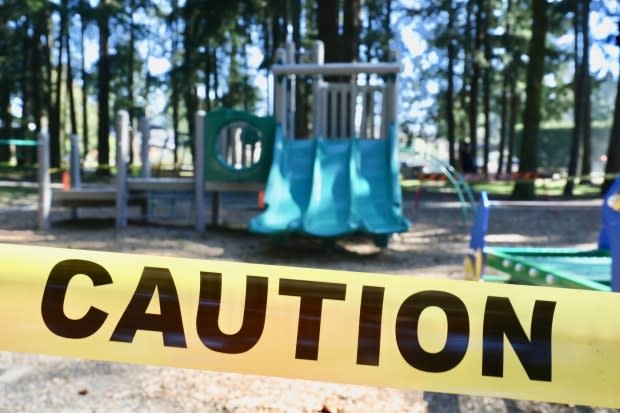Frustration for parents as COVID-19 further complicates testy custody arrangements
Before the COVID-19 pandemic hit B.C., a Vancouver Island dad had cleared his work schedule for the second week of March break so that he could spend time with his nine-year-old daughter.
The father, who CBC is not naming to protect the privacy of his child, has a detailed, court-ordered agreement with his ex-partner that guarantees him parenting time every other weekend, along with some holidays and March 20 to 29.
But then, just three days before the scheduled drop-off date, the father received a message from his ex informing him she had developed symptoms of COVID-19 and would be going into isolation. She told him their daughter was now unable to leave the house and see her dad as planned, according to an email shared with CBC.
The news came as a disappointment but not a surprise to the father.
"I kind of expected an email like this, just based on a pattern of behaviour that has occurred in the past," he said.
"It does create a little bit of frustration, so I had to step up a little bit and think, OK, what should we do now?"
Denial of court-ordered parenting time is just one of the many potential consequences of this pandemic for family legal disputes, according to lawyers. Provincial health officer Dr. Bonnie Henry has said it's a question for legal experts, but the goal should always be to minimize potential exposure to the virus.
The Vancouver Island dad says COVID-19 has aggravated an already contentious situation.
A Jan. 17 provincial court order laying out his parenting rights confirms that his ex "has unilaterally cancelled parenting time at certain times" and makes it clear that there can be no change to the schedule without the consent of both parents.
The father isn't sure where to turn now.
"The only thing I ask the court is to find a way to protect that parenting time," he said. "I just think my daughter should be allowed to have a relationship with both parents."
'Minimal risk' in honouring parenting agreements
Leena Yousefi and Ari Wormeli, who practise family law together in Vancouver, said their firm has fielded a number of calls from parents going through similar situations.
Yousefi said, in general, the physical distancing measures ordered by the province shouldn't prevent parents from honouring their agreements in most situations.
"[There is] very minimal risk in putting the child in your car and taking the child to the other parent's home," she said. "There's huge value in a child seeing both parents and experiencing that love."

In cases where there's a disagreement about this, Yousefi recommends mediation or arbitration with a neutral third party.
If that's not possible, Wormeli points out B.C. judges are still hearing urgent family matters by phone.
"They are hearing COVID-19 denial of access issues; that is on the urgent issue list," Wormeli said.
Parenting time isn't the only family legal issue that's been complicated by the COVID-19 pandemic.
Paying child support in an economic crunch
With so many people now out of work, there's also the question of spousal and child support payments.
Is there any leeway for parents who've lost their jobs and can't afford their payments? What about the parents who depend on those payments and might need them now more than ever?
According to Yousefi and Wormeli, there's no easy answer.
"As much as possible, parents need to agree that this situation is really outside of anyone's control and nobody has any ill will," Yousefi said.
She says compassion is key in these situations, and when possible, parents should try to work out "who can handle the pain the most and for how long." That could mean the parent with more savings might have to dip into them to prevent their ex-partner from falling deep into debt.
But Wormeli points out that many parents don't have an ex-partner they can count on — either voluntarily or by court order — during times of extreme financial stress. That means more children are now in danger of falling into poverty.
"They're not actually going to get enough to really help them," he said.
On the bright side, Yousefi said there have been some positive side effects of B.C.'s courts suspending regular operations during the pandemic.
"For most people, because of the court closure, they just have to accept that they may not have a resolution by a judge, so they almost get pushed into agreeing with each other," she said.

